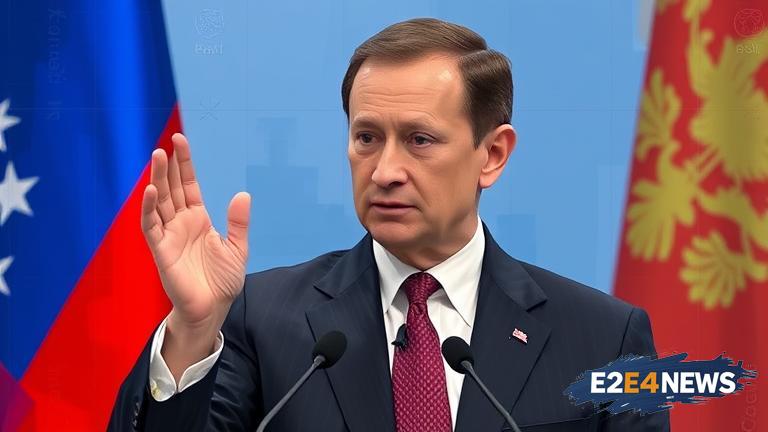In a move that has sent shockwaves across the international community, Russia’s former President Dmitry Medvedev has issued a warning of potential global consequences as Moscow announced it is no longer bound by the Intermediate-Range Nuclear Forces Treaty (INF). This treaty, signed in 1987, banned the development, production, and deployment of ground-launched missiles with ranges between 500 and 5,500 kilometers. The decision by Russia to disavow the treaty comes after years of accusations and counter-accusations between Russia and the United States regarding compliance. The U.S. had previously withdrawn from the treaty in 2019, citing Russian violations. Medvedev, who currently serves as the deputy chairman of Russia’s Security Council, emphasized that the move is a response to what Russia perceives as aggressive actions by the West. He warned that the consequences of this decision could be far-reaching and potentially devastating, hinting at a new era of nuclear proliferation and heightened military tensions. The INF Treaty was a cornerstone of arms control agreements between the U.S. and the Soviet Union, later Russia, and its demise is seen as a significant setback for international efforts to control nuclear weapons. Russia’s decision to abandon the treaty has been met with concern globally, with many nations expressing fear over the potential for a new arms race. The European Union has called for calm and urged both the U.S. and Russia to reconsider their positions, emphasizing the importance of preserving arms control agreements for global security. China, which is not a party to the INF Treaty, has also weighed in, calling for restraint and dialogue. The United States has reiterated its stance that Russia’s actions are the reason for the treaty’s collapse, pointing to what it claims are repeated violations by Moscow. Despite the warnings and international outcry, Russia seems determined to pursue its military modernization, including the development of new missile systems. This move is part of a broader strategy by Russia to assert its military presence on the world stage, following a period of significant geopolitical tensions, including the conflict in Ukraine. The implications of Russia’s withdrawal from the INF Treaty are multifaceted, ranging from the potential for increased military spending by affected countries to the destabilization of regional security architectures. Experts warn that the end of the INF Treaty could lead to a proliferation of intermediate-range missiles in Europe and Asia, significantly increasing the risk of conflict. Furthermore, the demise of this treaty undermines the broader framework of arms control agreements, making it more challenging to negotiate future disarmament treaties. The international community is watching the situation closely, with many calling for emergency talks to address the crisis. In the face of these developments, the United Nations has reiterated its commitment to disarmament and non-proliferation, urging all parties to engage in constructive dialogue. As tensions continue to escalate, there are fears that the world may be entering a new Cold War era, characterized by heightened military tensions and a significant increase in nuclear arsenals. The economic implications of such an arms race could be profound, diverting significant resources away from social and economic development towards military spending. In conclusion, Russia’s decision to disavow the INF Treaty marks a dangerous turning point in international relations, with far-reaching consequences for global security, stability, and the future of arms control. The coming months will be crucial in determining how this situation unfolds, with the international community holding its breath as it waits to see if diplomacy can prevail over the lure of military might. The path forward is fraught with challenges, but there is a universal agreement that preventing a new arms race and preserving the remnants of the international arms control regime must be a priority. This will require concerted effort and goodwill from all major powers, as well as a commitment to dialogue and negotiation over confrontation. Only through such efforts can the world hope to mitigate the risks associated with the demise of the INF Treaty and work towards a more stable and secure future.





